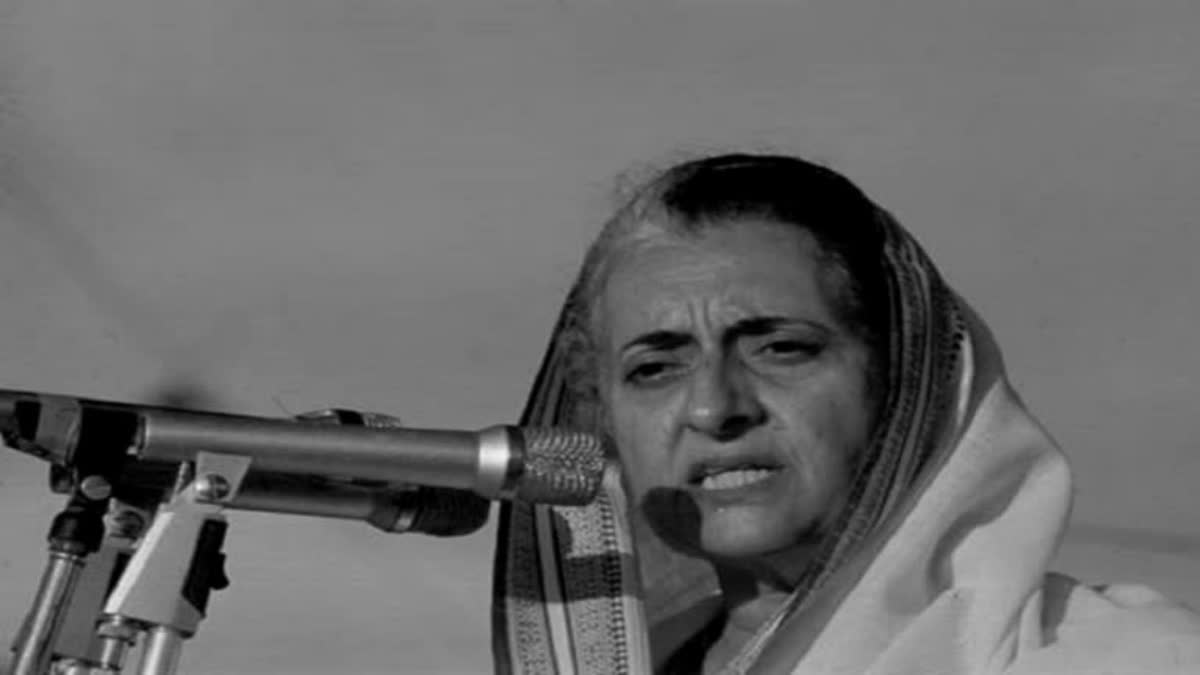Patna: In the wake of the anniversary of late Prime Minister Indira Gandhi's death, the nation reflects on her remarkable political journey, notably the pivotal visit she made to Belchhi on August 13, 1977. On this day, the Iron Lady, known for her strong governance, demonstrated her ability to amplify the voices of the people as the leader of the opposition. This historic visit to Belchhi, in the aftermath of a gruesome mass murder, marked a turning point in her career and contributed significantly to her eventual return to power.
Also read: Emergency in India: A glance at the nation's darker past
The massacre that shook Bihar
Bihar, a state with a long history of caste conflicts, witnessed a particularly disturbing incident in 1977. On May 27 of that year, in the Belchhi block of Patna district, 11 individuals from the Dalit community fell victim to an abhorrent act of violence, which shook the entire nation. These 11 innocent souls were brutally burnt alive by members of the upper caste in Belchhi village. Tragically, even a 14-year-old boy attempting to escape the flames met the same gruesome fate. Among the victims, eight belonged to the Paswan caste, while three were from the Goldsmith caste.
-
Remembering former PM Indira Gandhi Ji on her death anniversary.
— Narendra Modi (@narendramodi) October 31, 2023 " class="align-text-top noRightClick twitterSection" data="
">Remembering former PM Indira Gandhi Ji on her death anniversary.
— Narendra Modi (@narendramodi) October 31, 2023Remembering former PM Indira Gandhi Ji on her death anniversary.
— Narendra Modi (@narendramodi) October 31, 2023
Indira Gandhi's unprecedented visit
The news of this heinous crime quickly spread across the nation and sent shockwaves through the political circles. Upon learning of the incident, Indira Gandhi, who was at her home in Delhi, immediately resolved to visit Belchhi, accompanied by former President Pratibha Singh Patil. When she arrived at Patna airport on August 13, 1977, several Congress MLAs were present to meet her. Witnessing the collective anger of the people, most leaders advised against her visit to the site. However, Indira Gandhi remained resolute and even picked up a shovel to symbolize her determination to confront the tragedy.
Overcoming obstacles on foot
Indira Gandhi embarked on the journey to Belchhi from Patna, and along the way, she encountered groups of people who had come to welcome her. As she approached the Belchhi village in the Harnaut block, she encountered a significant obstacle in the form of accumulated water. Navigating these waters in the Diara region is no easy feat. Yet, Indira Gandhi persisted and chose to continue on foot. Undeterred, the local populace eventually arranged for an elephant to transport her. The elephant, belonging to Munna Shahi, would be the mode of transportation that etched this visit into the annals of history.
Narendra Kumar, a senior Congress leader who was present during the visit, recollects that Indira Gandhi initially began the journey in a jeep. However, her vehicle got stuck in the mud, prompting her to proceed on foot. She later agreed to ride the elephant without any harness. Pratibha Singh Patil, who was accompanying her, overcame her fear of riding an elephant and held onto Indira Gandhi's back. After a challenging three-and-a-half-hour journey, they finally arrived in Belchhi village, where the rest of the entourage had to cross the river on foot, which was chest-deep at the time.
Listening to the people's plight
When Indira Gandhi reached Belchhi, she was met with a warm welcome from the villagers. The former Prime Minister earnestly listened to the grievances and concerns of the people. She held their complaint documents with open arms, conveying her commitment to addressing their issues. The visit drew an enormous crowd, and despite facing ostracism from certain politicians, Indira Gandhi's presence had already left a profound impact, shaking the government in Delhi.
Did Belchhi lead to Indira's political resurgence?
Shyamsunder Singh Dheeraj, a Congress leader who accompanied Indira Gandhi to Belchhi, vividly remembers the journey. Despite numerous obstacles, they managed to reach the village, driven by Indira Gandhi's unwavering determination to be there. As she began her return journey, there was a noticeable shift in the mood. Thousands of people lined the streets in Patna, welcoming Indira Gandhi with an outpouring of warmth and support. It became evident that Indira Gandhi's visit to Belchhi had played a significant role in her eventual return to power.
Indira Gandhi's visit to Belchhi in 1977 remains a remarkable chapter in her political career. It showcased her commitment to standing with the oppressed and her willingness to go to great lengths to ensure justice. This historic visit not only left an indelible mark on Bihar but also acted as a turning point in Indian politics, ultimately leading to Indira Gandhi's return to the highest office in the land.



